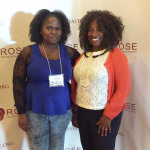In Our Spotlight
Lindiwe Sibeko: Committed to Improving Women’s Health
If you talk with Lindiwe—Lindi—Sibeko for more than a minute, you will find yourself immersed in a wide-ranging conversation about her work, both here in Massachusetts and around the globe. Her career in nutrition has taken her from South Africa to Canada (including indigenous communities in Northern Quebec) to Tanzania and, now, to UMass Amherst.
Sibeko has a passion for people and their health care, especially women and children who do not have easy access to it. In South Africa, she worked with HIV-infected mothers investigating safe breast-feeding strategies. In Canada, her work was centered on health disparity issues for low-income women and children. Her career is far-reaching; it involves nutrition and transcultural mental health determinants of reproductive health among immigrant and low-income women, and she is an international board-certified lactation consultant.
Sibeko’s worldwide impacts
Sibeko is truly a global citizen. She was born in South Africa but left at age four to move with her family to Tanzania, where she lived until she was ten years old. England was next, for five years, and then she was on to New York City (with a long jog up to Canada). This unique international perspective contributes to her understanding of the health care situation around the world: both the areas with good services and those where infrastructure and outreach are sorely lacking.
Although Dr. Sibeko trained as a dietician, her resume and journey extend well beyond that one title. She manages to combine genuine warmth with the knowledge gained from in-depth education and broad work experience--plus a strong dose of goodwill. She seeks to affect change from the inside out, by building trust with those with whom she works. Reflecting on her work she says, “The power of people receiving what is meaningful for them opens them up to others in a respectful way; this is what happens when they are treated with dignity.” She reports that her work benefits by seeing assets in communities and understanding that both her Extension and research work involves a process of exchanging knowledge. “I have learned that community-based work, if it has a hope of shifting behavior, requires a partnership approach…. there is a co-learning process that evolves, where listening without judgment is critical. This means that over the years, I have truly learned to honor experiential knowledge”. She lets people know, “I am here to learn from you.” She believes that openness builds trust and sets the stage for real change within communities.
For example, when Sibeko was working as a community nutritionist at a community health center clinic in North Kingston, in Ontario, the issues were multi-layered: failure to thrive, food insecurity, non-existent prenatal care, and cyclical poverty. She found that superficial help was not making any impact and she needed to go deeper. Sibeko rolled up her sleeves and made her presence in the community known. She visited private homes, sat with people and listened. Slowly, barriers were broken down. She used home visits to make nutrition counseling more relevant, starting at individual levels and working towards wider community impacts. She credits success to, in part, involving volunteers from inside the communities themselves. Many of these were women who, once their immediate issues were addressed and they were offered real tasks that had meaning, helped create sustainable programs.
Safe Breast-Feeding Strategies
As her career progressed, Sibeko found herself really enjoying research. As her doctoral work came into view, the topics she studied focused on places where health equity and social justice intersect. Her interests also turned to the feasibility of home-based pasteurization of breast milk--especially useful for those who were HIV-infected in South Africa. She found the safe infant feeding intervention developed was both feasible and acceptable as long as women had support (either from their social circle or trusted community health worker).
Subsequent to earning her doctorate, Sibeko switched gears in her postdoctoral work to examine social-cultural aspects of health behaviors for the reproductive period of a woman’s life. In particular, she was intrigued by the psycho-social influences of infant feeding decisions of low-income women and for immigrant women with low birth weight infants. Part of her work involved evaluating Quebec’s breast-feeding policies.
Role as Extension Assistant Professor
In 2013, a friend sent her news of an opening at the University of Massachusetts Amherst for an extension assistant professor in nutrition. It was a position that brought together pieces of her applied research and in which she could engage communities as she translated research into education in practical ways – the very essence of extension faculty work. Currently, her work focuses on addressing breast-feeding disparities in the African-American population in nearby Springfield, a city where the infant mortality rate for African-Americans is twice that for Caucasians. Sibeko is also interested in developing school-based strategies for the prevention of overweight and obesity in young children.
Undergraduates Become Involved
 During the summer of 2016, Sibeko is being assisted by UMass Amherst undergraduate Vanessa Ford. Ford is one of 30 undergraduate scholars funded for the summer by the Center for Agriculture, Food and the Environment to work closely with individual faculty members on a variety of research and extension projects. Ford is meeting with women in focus groups in Springfield as she becomes trained to act as moderator/facilitator. This effort is intended to gather information to better understand attitudes toward breastfeeding in this community and any potential barriers that may exist. Sibeko and Ford attended and presented at a national conference in New Orleans in July that aimed to promote breast feeding within African-American communities.
During the summer of 2016, Sibeko is being assisted by UMass Amherst undergraduate Vanessa Ford. Ford is one of 30 undergraduate scholars funded for the summer by the Center for Agriculture, Food and the Environment to work closely with individual faculty members on a variety of research and extension projects. Ford is meeting with women in focus groups in Springfield as she becomes trained to act as moderator/facilitator. This effort is intended to gather information to better understand attitudes toward breastfeeding in this community and any potential barriers that may exist. Sibeko and Ford attended and presented at a national conference in New Orleans in July that aimed to promote breast feeding within African-American communities.
Recognition and Awards:
Sibeko was named a Fellow in Civic Engagement and Service Learning at UMass Amherst in 2014/15.
In 2015/16 Sibeko was one of seven faculty selected for the University’s prestigious Center for Research on Families’ Scholars program.
Research projects funded by Center for Agriculture, Food and the Environment’s Massachusetts Agricultural Experiment Station:
- Integrating Urban Agriculture and Nutrition Promotion to Increase Consumption of Fruits and Vegetables: A Focus on Worcester, Massachusetts.Team: L. Sibeko, (Department of Nutrition), F. Mangan (Stockbridge School of Agriculture), L. Sullivan-Werner (Nutrition Education Program), Z. Barros (Stockbridge School of Agriculture).
- Breastfeeding Attitudes, Beliefs and Experiences of African American Women in Springfield MA Team: L. Sibeko, (Department of Nutrition, L. Cordeiro (Department of Nutrition)
